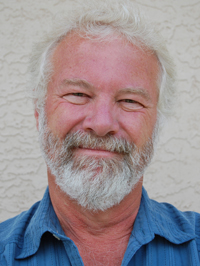
How do you deal with a parent’s death? I have no idea. Like most people, I grew up imagining that my mother and father were immortal or nearly so.
I couldn’t imagine either of them as the cosmetically enhanced corpses we see at open-casket funerals. But now I have to grapple with that fact as I fly to Ottawa to see my father before he dies. On late Tuesday afternoon, my mother called to suggest that I prepare myself for the worst.
My dad’s personality has slowly been eroded by that most-cruel disease, Alzheimer’s, and now, at age 84, his body’s ability to function is ending
If anything, I want to just curl up in a ball and weep. But I can’t do that. As a mature adult male and as the oldest of six kids (only five of us still survive) I have to maintain some semblance of control.
But that is hard to do. I just want to deny everything and pretend none of it is happening… but of course it is and simple denials won’t alter that fact.
I would, however, like to pay tribute to my father. Lawrence David Rooney was born in Toronto in1926 and, like everyone born in that time, endured the Great Depression. Raised in Kingston, he anticipated being conscripted and sent to war in the late 1940s. Fortunately for him, the war ended just before he would have been sent to fight the Japanese in 1945.
Dad was probably one of the gentlest and smartest human beings I ever knew. A devout Roman Catholic who as a student was instructed by Jesuits, he nonetheless taught me, my three brothers and two sisters to “never park (y)our brains at the door.” Independent thought and an ability to discuss or argue points on any (nothing was taboo) issue were actively encouraged at our family dinner table. And for that I have always been grateful. I have always loved my father for actively encouraging such independent thought.
He taught us to be responsible for who we are, to love our identity as Roman Catholic Irish-Canadians and to always be proactive within society. He wanted curious and intelligent children and I believe he got them. Besides a journalist, he sired a bio-chemist, an environmental engineer, an international businessman, a social worker and an office administrator. Success, he told us, was measured by our enjoyment of what we do and the love and respect of our families, friends and neighbours. Money and celebrity never, ever mattered, even though he was financially and professionally successful and spent about 21 years in Thailand, Mexico and Colombia.
My father joined Alcan International at a time when the company had operations in more than 120 countries. As kids we lived in Switzerland, Canada, Colombia, Mexico and Thailand. That was good for me and my brothers and sisters because it gave us an understanding of the world and other cultures that is denied most Canadians, and, too, because he and our mother were were able to raise six kids without worrying too much about money.
We had first-rate life experiences. How we chose to use that kind of cultural capital was up to us — as were all choices we children made. All he and Mom could do was prepare us for independence and then set us free.
My father loved life immensely. He — like his own father before him — was an excellent amateur photographer. One of my nephews is currently scanning and saving his collection of about 17,000 slides on to CD ROMs for everyone in the family. He was an avid collector of pre-Columbian artifacts from Colombia and amassed a lovely collection of statuettes, musical instrument, ceramic masks, gold moulds, weapons, ceremonial objects, funerary urns, pots and other things. A significant portion of his collection now resides at the Redpath Museum in Montreal. He retired in 1989 after more than 40 years with Alcan. In his retirement he acquired a Bachelor of Fine Arts from Carleton University and graduated cum laude. He was immensely proud of that because it was something he wanted to do — not something he had to do. During this time, my mother, Margo, was a palliative-care volunteer at Riverside Hospital in Ottawa. The two of them were inseparable and travelled abroad every year until 2007.
Alzheimer’s broke my father’s spirit. He and Margo lived together until just 13 months ago when his physical deterioratrion forced his committal to the Glebe Centre in Ottawa. I visited them every year and I remember sitting with him as he wept oipenly in the car after visiting his doctor.
“I never, ever, thought my life would end like this,” he said.
But it did.
He ultimately went to a very nice home, the Glebe Centre, in Ottawa 13 months ago where my mother visited him every day to feed him and hold his hand. Although he had flashes — and only flashes — of lucidity during his first year, he eventually became entirely unresponsive to human stimuli.
Fortunately, he was always happy and smiling. He was not one of those unfortunates who become profane or violent. For that I am eternally grateful. It allowed my mother to retain peaceful and positive memories of his last years.
That is some — albeit cold — comfort as I organize what I believe will be my last chance to see him while he is sill alive. But it is comfort nonetheless.
If you don’t see me around, now you’ll know where I am: I have gone to bury a man I have admired and loved my entire life.
Post Script: I arrived in Ottawa at midnight Wednesday and went immediately to see him. My father died Thursday morning at about 5:30 am.



